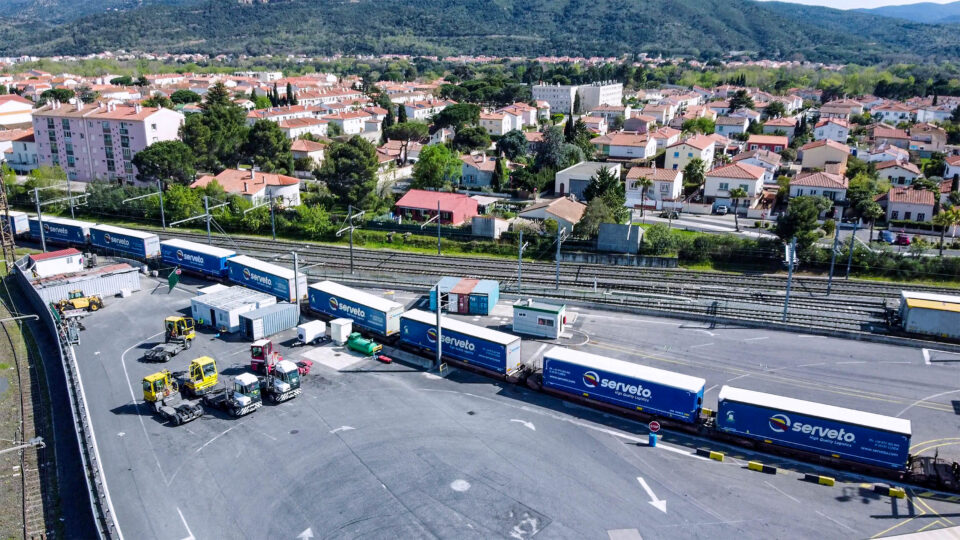Freixenet Group, pioneer in the transport of Cava by train for the European market

Freixenet Group, a world leader in quality sparkling wines, continues to advance in policies to decarbonize its processes thanks to its intermodal transport project for Cava, which combines road and rail transport. In this way, Freixenet Group becomes a pioneer in Spain in the rail transport of Cava, given the need to promote and support rail as an essential transport option to contribute to the decarbonization of the sector.
For this project, the Freixenet Group has involved the delegations of the different countries to which it exports and which are responsible for transportation. Currently, the countries that are starting to load on the train are Germany, Poland and Belgium. Specifically, on each trip to Bingen (Germany), 1.6 tons of CO2 are reduced per trip, which represents a 61% reduction in emissions. In the case of Torun (Poland), 3.86 tons of CO2 are reduced per trip, with a 75% reduction in emissions, and in the case of Willebroek (Belgium), 1.72 tons of CO2 per trip, with a reduction of 59.2%.
“Freixenet Group is a reference company at European level, our main market, therefore, sustainable mobility has become one of our priorities,” says Gloria Martí, head of sustainability and environment at Freixenet Group. “This project has allowed us to collaborate and add knowledge between different departments. We know that the energy transition is one of the aspects that should mark our roadmap and, therefore, it has become vital for the correct development of our activity,” she adds.
Freixenet Group has promoted this project after the pilot test carried out in 2021 together with the Clúster Ferroviari In-Move by Railgrup, chaired by Cimalsa, the Clúster Vitivinícola Català, INNOVI, and the Committee of Multimodal Services, to promote multimodal transport in the sector using rail as a means of transport to reduce road traffic and CO2 emissions.
Use of renewable fuel
In its desire to reduce its environmental footprint, Freixenet Group has also collaborated with other companies such as Repsol and Serveto. With both companies it initiated a pilot project that has now become a reality. Currently, 50% of its full loads are shipped to the central logistics operator in Madrid using Repsol’s renewable fuel from used cooking oils and other waste. This renewable fuel can be used in standard trucks and is leading to an 85% reduction in carbon emissions.
Cristina Durán, head of Logistics, adds that with all these projects plus those that are to be implemented in the coming months, Freixenet is committed not only to being sustainable in its own mobility, but also to supporting public bodies, schools and groups of companies to advance faster and to be a benchmark in its sector and to give impetus to mobility by train outside the sector as well.
It should be noted that, recently, Freixenet Group has organized within the framework of the Barcelona Wine Week the round table “The challenge of sustainable mobility: How does it affect the wine sector? Debate of proposals and solutions”, moderated by Jordi Espin, secretary general of Transprime Spanish Shippers’ Council, with the participation of Gloria Martí and Cristina Durán together with Simó Batlle, technical director of CIMALSA; Noelia Martín, strategy analyst at Port de Barcelona; Xavier Lluch, independent consultant and professor at the Escola Europea Intermodal Transport; and Agustí Ardiaca, head of intermodal transport development at Serveto. The conference addressed the solutions that can be adopted to improve sustainable mobility in the wine and cava sector, including intermodal transport and renewable fuels.
